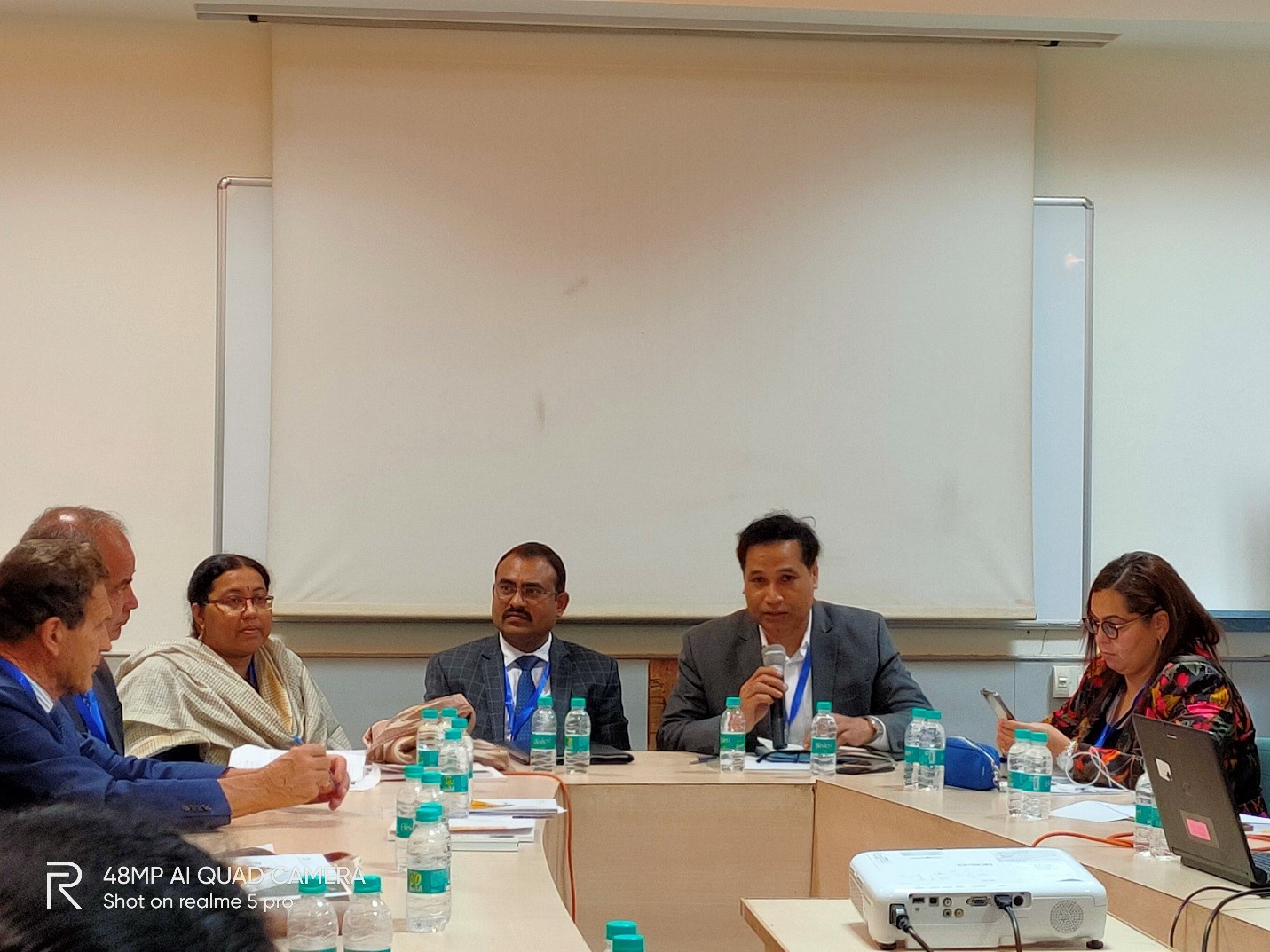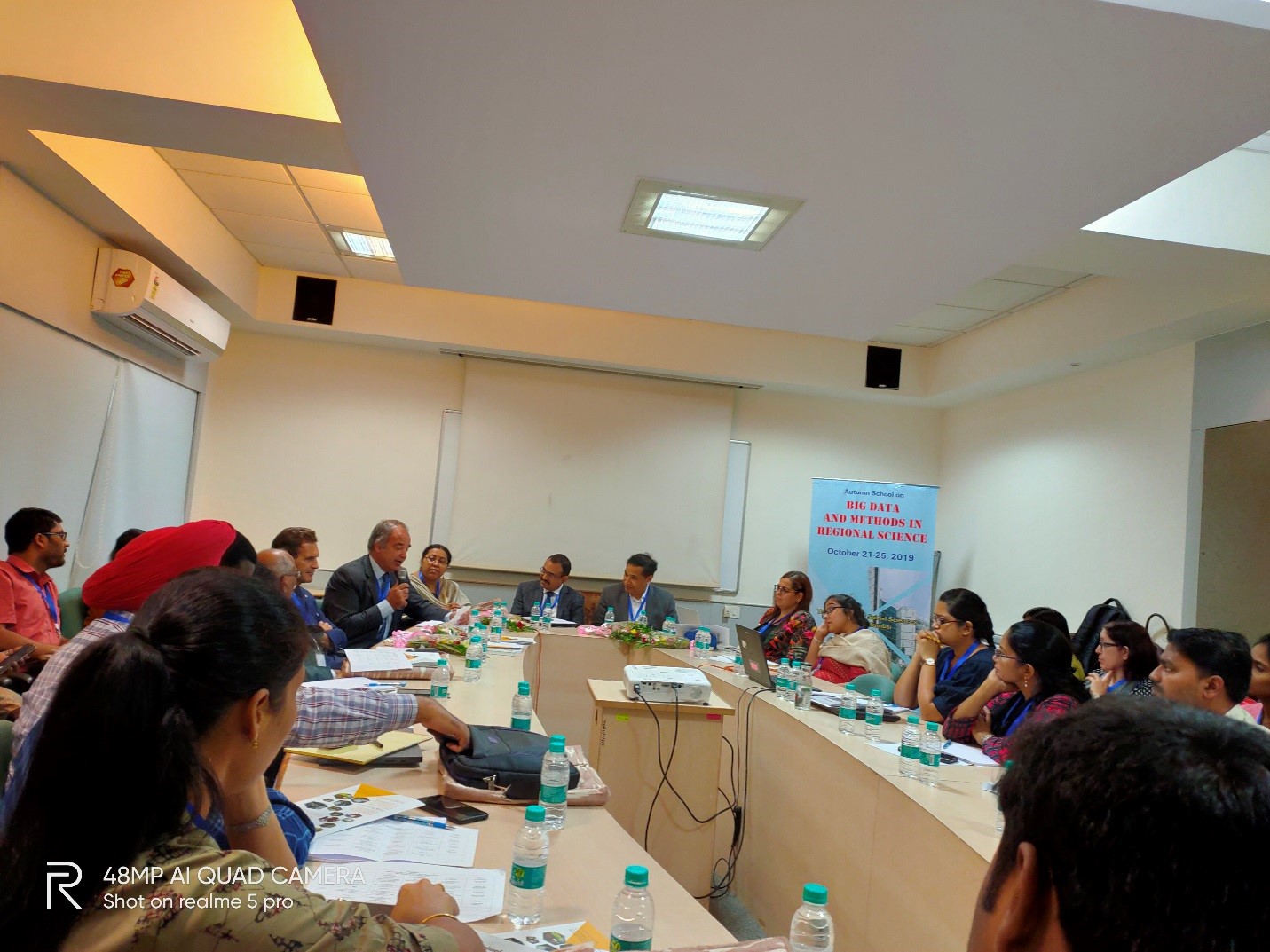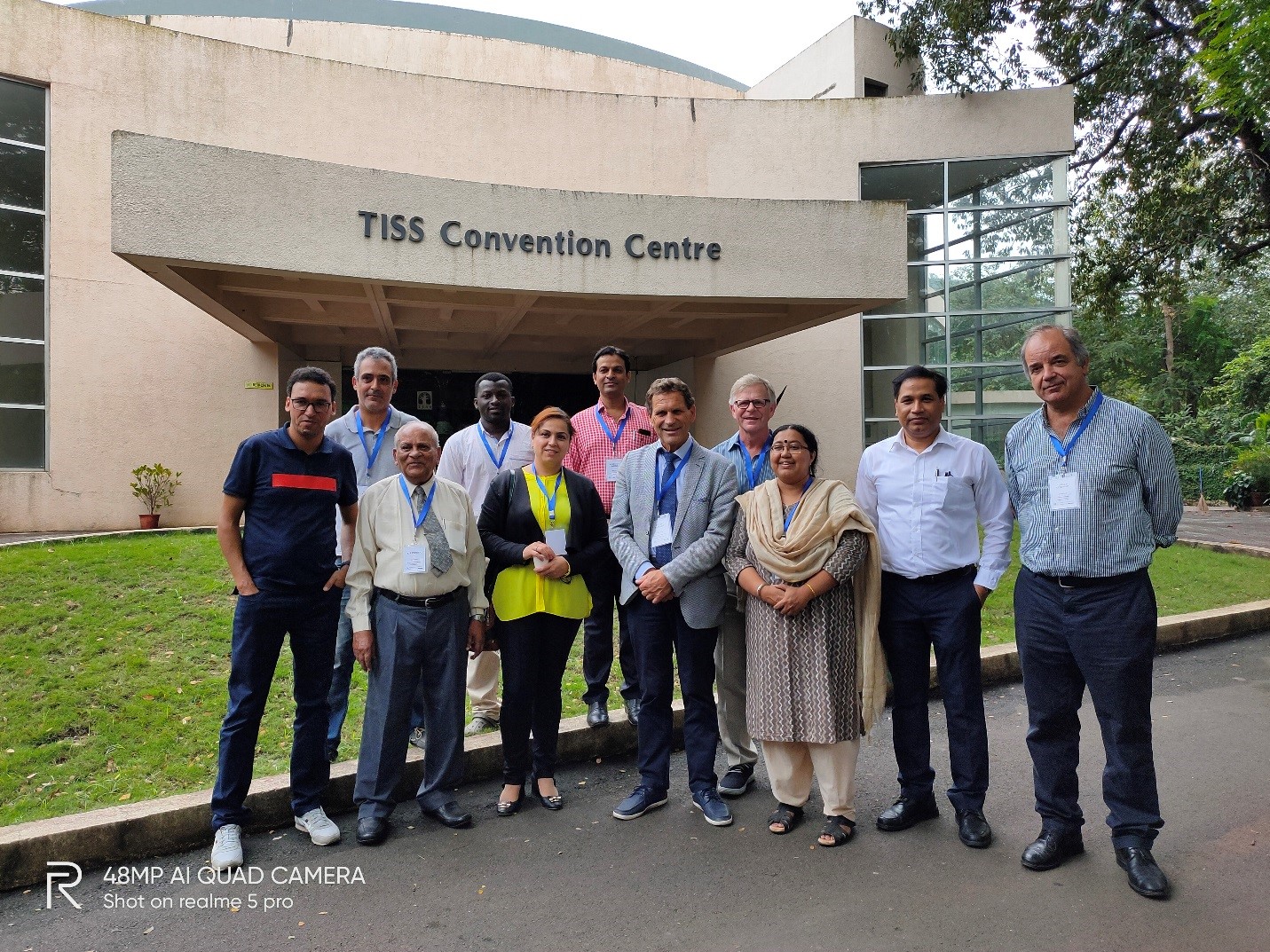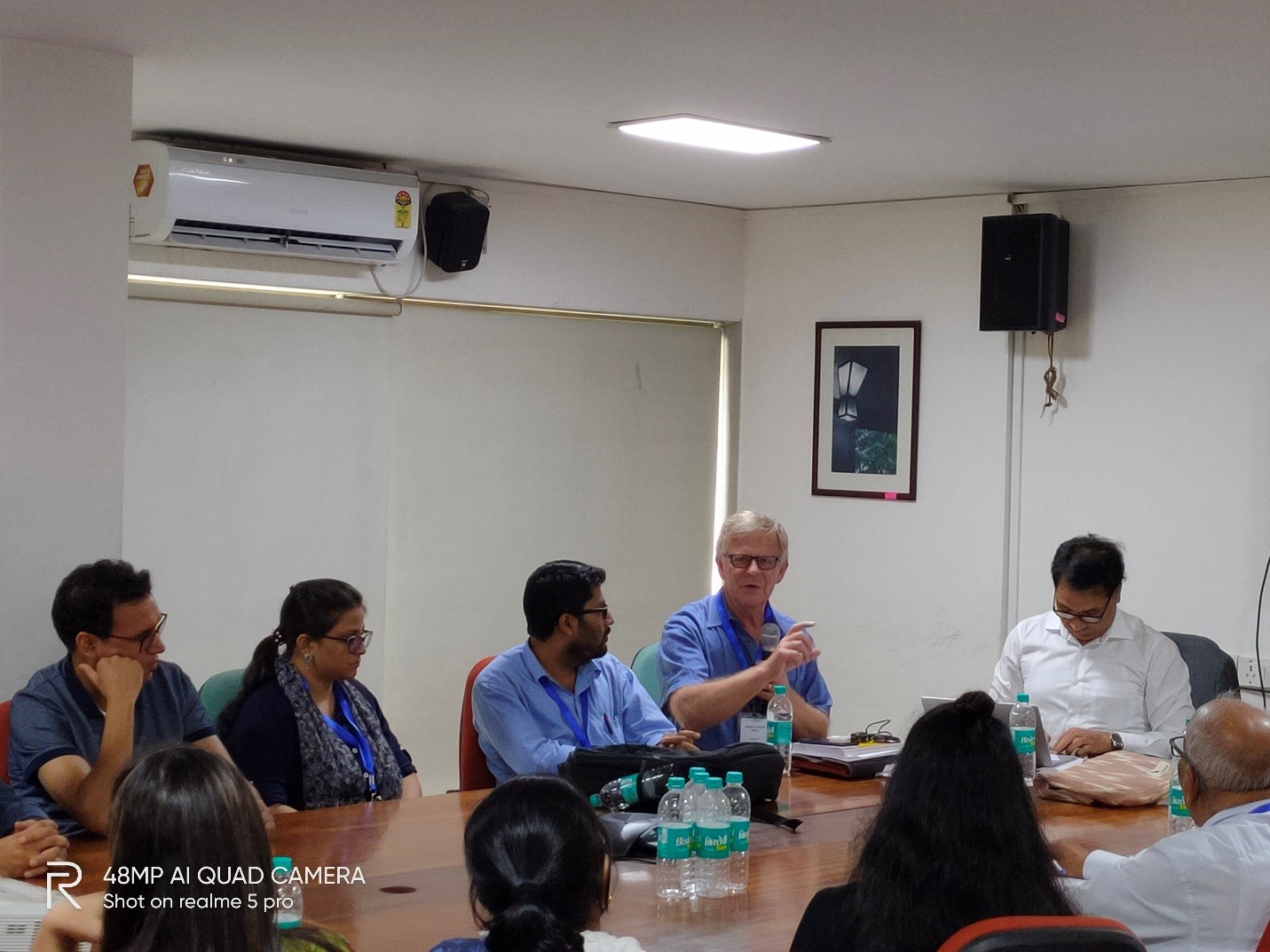Workshop in Mumbai on Big Data and Methods in Regional Science
The five days’ workshop on methods in regional science took place in Mumbai from October 20 until October 25 organized by Prof. Sumana Bandyopadhyay from the Regional Science Association of India in collaboration with Prof. Abdul Shaban from the Tata Institute of Social Sciences.
The workshop involved more than forty researchers from different parts of India, Morocco, the Netherlands, the United States and Portugal. The event was excellent, enhancing teaching, learning and research experiences and diffusing a knowledge on methods in spatial analysis that are very effective in addressing issues in regional science and development.
Participants learn with each other how advanced methodological techniques apply to South Asia and Africa revealing new evidences and discussing how existing conceptual and applied models should be adapted to understand the dynamics of the slums in Mumbai; to perceive the behavior of criminals in prisons; and to grasp the challenges of urban transport and congestion. Adjusted frames of references to create more knowledge on the sustainability and resilience of urban and rural areas in their environmental, social, economic and institutional dimensions, to learn lessons of the circular economy in South Asia; and to find how poverty is evolving. Finally, to understand the technological innovations to improve urban management.
It was a kick off for a renewed regional science in South Asia, combining the science with policy with adequate methods and techniques.

Figure 1. Introductions

Figure 2. Opening address by Tomaz Dentinho

Figure 3. Speakers and organizers

Figure 4. Closing session by Jean –Claude Thill
